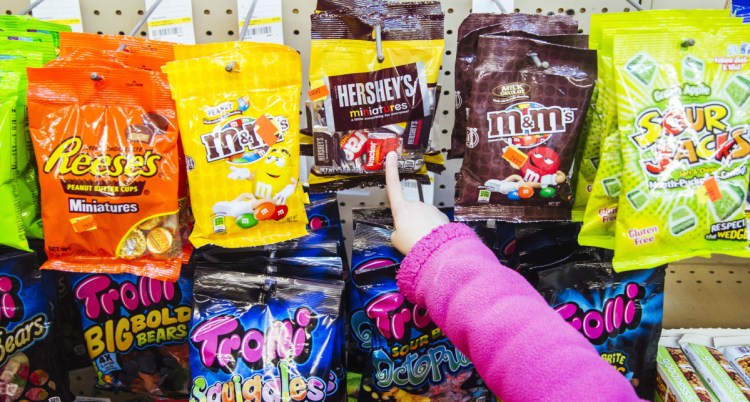The federal government has said once again that Gov. Paul LePage cannot ban the use of food stamp benefits on sugary drinks and candy, a decision he said last week would harm the health of Maine families.
Fortunately, there’s little to back up his claim – and plenty of other ways for the governor to intervene if he wants to make Maine a healthier state.
It was the second time the U.S. Department of Agriculture denied LePage’s request, but the first time under the Trump administration, which the governor felt may be more open to his ideas than the department under Barack Obama.
Frankly, we’re ambivalent about the proposed ban, which drew bipartisan support when considered two years ago in the Legislature.
At its heart, food stamps, known formally as the Supplemental Nutrition Assistance Program, is, well, a nutrition program. Allowing its use on unhealthy goods such as soda and energy drinks is antithetical to that mission.
And as LePage points out, SNAP amounts to an annual subsidy for the junk-food industry that is measured in billions of dollars, spending that contributes to major health problems such as obesity and heart disease.
But the SNAP funds spent on sugary drinks and junk food represent a tiny percentage of overall spending on soda, candy and other food void of nutritional value, and thus it is unlikely that LePage’s proposed ban would have much of an effect on the producers of junk food. Plus, soda consumption has been falling for years now, indicating that other initiatives to reduce use are working.
Besides, it’s not SNAP that is making America obese – the epidemic is a problem across all income levels.
And while it’s true that low-income Americans are more likely overall to be obese than those with higher incomes, there is no evidence that food benefits are the reason. In fact, for some recipients, the presence of SNAP makes it more likely that they will eat healthy food.
Those realities make it very unlikely that LePage’s ban would have helped Mainers become more healthy. It certainly wouldn’t have made them less hungry, which has been a worsening problem under the LePage administration.
The number of Mainers receiving SNAP fell from 243,301 in December 2010 to 178,193 in December 2017, largely because of the barriers LePage has put in place.
It’s certainly not because those people no longer need help – Maine’s hunger rate is worse than the national average, and Maine is one of the few states where hunger has not improved along with the economy.
Charity food distributors have been posting record numbers on an annual basis, indicating that they are helping the people left behind by LePage’s policies.
The governor should focus on using his position to find the best way for Maine’s government to help those folks. If he wants to do something about the health of low-income residents, that would be a good place to start.
Copy the Story LinkSend questions/comments to the editors.



Success. Please wait for the page to reload. If the page does not reload within 5 seconds, please refresh the page.
Enter your email and password to access comments.
Hi, to comment on stories you must . This profile is in addition to your subscription and website login.
Already have a commenting profile? .
Invalid username/password.
Please check your email to confirm and complete your registration.
Only subscribers are eligible to post comments. Please subscribe or login first for digital access. Here’s why.
Use the form below to reset your password. When you've submitted your account email, we will send an email with a reset code.